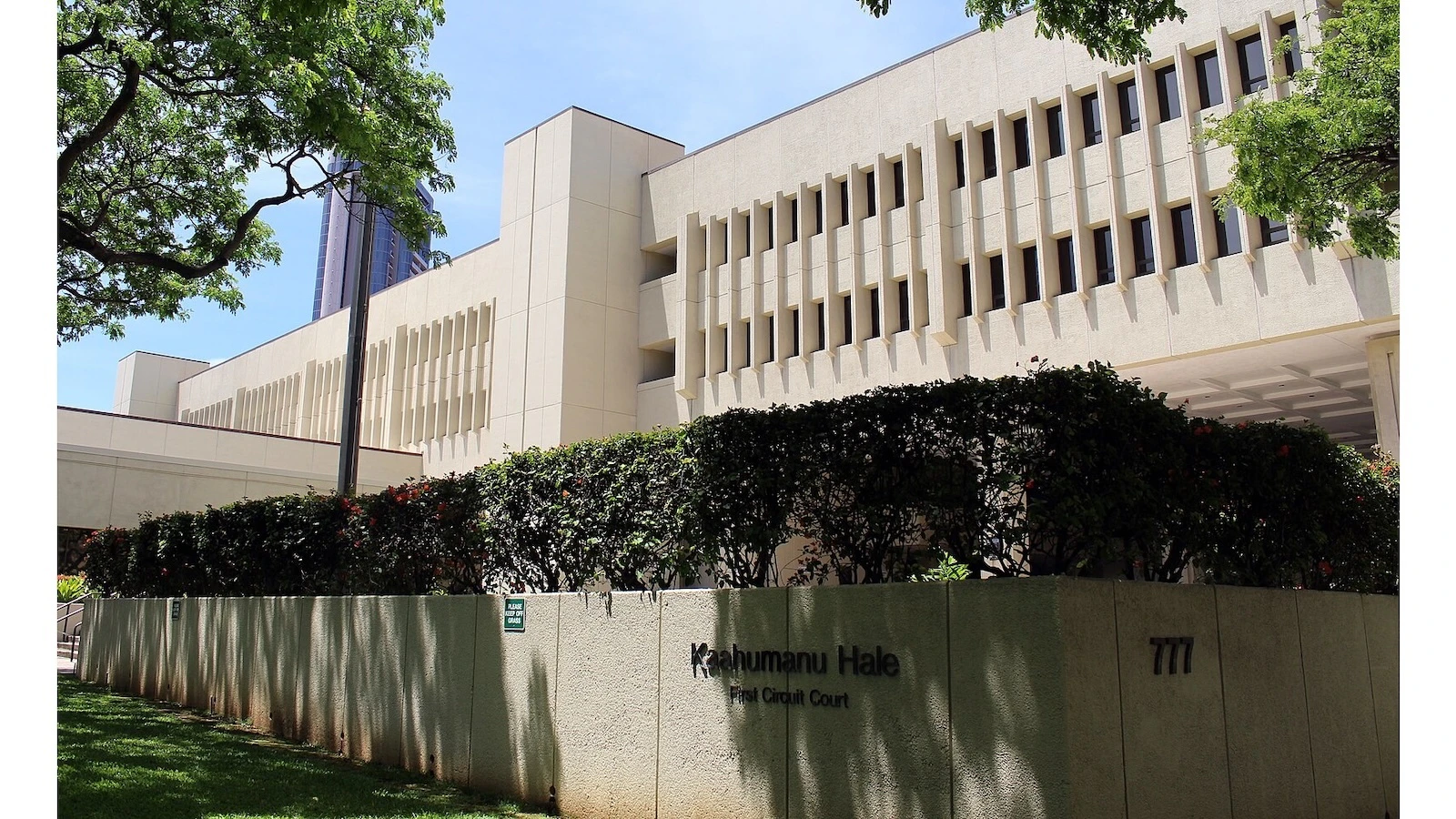A Kailua-Kona man previously convicted of murder is going back to court.
In 2019, Brian Lee Smith was sentenced to life in prison with the possibility of parole after the fatal shooting of Thomas Ballesteros, Jr. in June 2018.
According to court records, Ballesteros and his friend Nikolaus Slavik were picking mangoes across the street from Smith’s home. When Smith approached them, an altercation began that ended with Ballesteros shot in the head and Slavik shot thrice.
At trial, Smith had testified that he had fired a handgun in self-defense, and that Ballesteros had previously broken into his house. Nonetheless, a jury found Smith guilty of second-degree attempted murder and three gun-related offenses.
But a seemingly minor quirk in that murder charge led to a years-long legal challenge that finally ended Friday, Sept. 12, when the Supreme Court remanded the case back to the Hawai‘i Island Circuit Court for another trial.
“It’s a mixed result for us,” Andrew Kennedy, attorney for Smith, told Aloha State Daily, adding that Smith is still facing a potential life sentence on the murder charge.
At issue was mens rea, the legal principal outlining a defendant’s mental state. Kennedy explained that, because “you can’t sentence people for an accident,” certain crimes require prosecutors to include in their accusation that the defendant intentionally performed the criminal act in question.
While the state did include the mens rea, or state of mind, for the murder charge — alleging that Smith “intentionally or knowingly” shot Ballesteros — Kennedy argued they failed to apply it consistently.
A person who uses a firearm in the commission of a felony is subject to a sentencing enhancement that imposes a mandatory minimum sentence — up to 15 years in the case of second-degree murder. The state pursued this enhancement in Smith’s case, but did not also declare the mens rea for that enhancement.
During oral arguments earlier this year, Kennedy outlined a hypothetical situation where this inconsistency could sentence someone unfairly.
“Picture a situation where a person is walking, they pick up a bag,” Kennedy told the Supreme Court in July. “They put that bag on their back, and everyone agrees this person has no reason to know what’s in that bag. They sit down, they start smoking some meth. A cop comes by, says ‘hey you’re committing a felony,’ arrests them. Says ‘can I look in the bag?’ Person says ‘Sure, go for it, I don’t even know what’s in there.’ In there is a firearm.”
In this situation, Kennedy said the bag holder would be subject to a mandatory minimum prison sentence of up to three years, even though the person was not “intentionally or knowingly” in possession of a firearm.
While this scenario bears little resemblance to any description of the Ballesteros shooting, Kennedy argued such a case would violate the defendant’s due process rights and potentially invalidate the prosecution’s case.
Ultimately, however, the Supreme Court concluded otherwise. Writing for the majority opinion, Chief Justice Mark Recktenwald — in one of his final opinions, as he retires at the end of September — determined that prior case law suggests that state of mind is not relevant for a sentencing factor and, even if it was, Smith had never suggested in previous testimony that he was unaware of the gun he possessed.
Despite that opinion, the case is still remanded to Circuit Court for a retrial, which Kennedy said was going to happen regardless of the Supreme Court outcome. But in that trial, Smith will, once again, face a potential life sentence with a mandatory minimum sentence of up to 15 years.
For the latest news of Hawai‘i, sign up here for our free Daily Edition newsletter.




